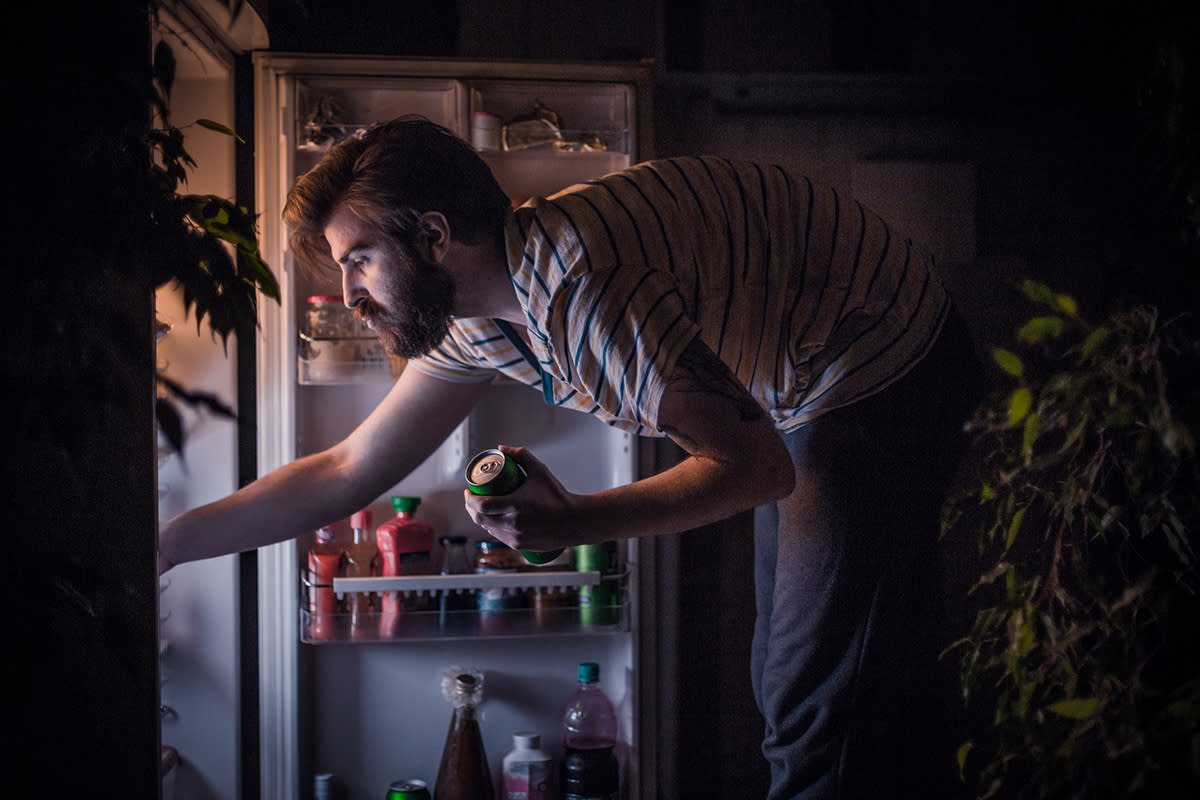The science behind night-time binge eating

Maybe you first noticed it during late-night study sessions — or during those huge family meals. For some of us, it’s a frequent habit when we order in after a too-long workday. But the problem of overeating just seems to be a bigger problem at night, especially if we’re stressed out. A new study published in the International Journal of Obesity shows this tendency isn’t all in your head, and that hormones might be to blame.
“It was already known that appetite hormones can be different in the evening — that your satiety hormones can be lower and your hunger hormones can be higher,” Susan Carnell, assistant professor of psychiatry and behavioral sciences at the Johns Hopkins University School of Medicine and one of the study’s lead authors, tells Yahoo Lifestyle. She and her colleagues wanted to know why that seems to be the case, particularly for those with a binge-eating disorder (BED) when triggered by stress.
The study tested 32 obese adults, half of whom had BED, in either the morning or the evening. After fasting for eight hours, they drank a Boost liquid meal. Then, to artificially induce stress, the subjects had to stick their hand into icy water for two minutes. Half an hour later, they ate everything they wanted from a buffet of pizza, chips, cookies, and candy. Blood drawn before, during, and after each of these steps indicated their levels of the hunger hormone ghrelin, the stress hormone cortisol, and the satiety hormone peptide YY (PYY).
Carnell said they expected the binge eaters to have higher levels of ghrelin and lower PYY in the evening than in the morning. To their surprise, both BED and non-BED subjects responded to the stress with higher levels of ghrelin in the evening than in the morning. The evening subjects’ self-reported subjective appetite was also greater. The main difference between the BED and non-BED subjects was that after their buffet meals, the binge-eating evening group had lower PYY (less of a feeling of fullness) than those tested in the morning.
“It tells us that there are biological reasons why evening might be a higher-risk time for overeating,” Carnell explained. Because this study was just a snapshot of people’s response in a lab rather than testing conducted over time, she can’t say whether the hormone levels are the cause of nighttime binge eating or the result of it. But she thinks her findings can help people decide whether this is a problem for them.
“You can monitor your own behavior and see if this rings true for you,” she said. “Then it might help to shift the majority of your eating earlier in the day — having a bigger meal at lunchtime or an earlier dinner — when you might be less likely to overeat.”
There’s only so much one can control, she acknowledged, especially the role that stress plays in all this.
“I feel like I’m living my own research now, because I have a baby and I’m really busy in the day, so I’m eating more in the evening,” Carnell said. “I think it’s good to just try to avoid stress in the evening. If you have to work in the evening, you have to work in the evening, but that might be good to think about.”
Read more from Yahoo Lifestyle:
Kate Middleton launches new mental health website aimed at helping kids
Is it bad that Melania and Donald Trump aren’t spending their wedding anniversary together?
Follow us on Instagram, Facebook, and Twitter for nonstop inspiration delivered fresh to your feed, every day.
